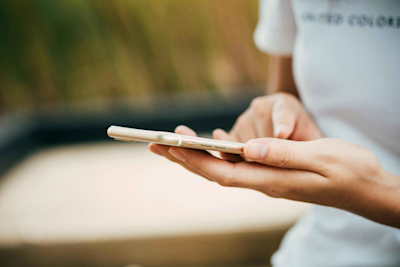
Remote Work: A Sign of Trust
Remote work is something a lot of us might need to get used to, it also requires a lot of trust from employers and managers.
Making sure that your colleagues are aware of if and when you’re available is the key to successful remote work. If someone needs to contact you, they can. Even if they know you might take some time to respond.
There are several benefits to a company encouraging remote work, not simply as a perk but as a standard form of employment and human understanding.
It is almost impossible to micromanage a remote team by ‘looking over their shoulders’, which allows for more freedom. In order for remote work to function efficiently, the employees must have proven themselves previously.
Although, even once proven, with appropriate processes in place within a company, potential laziness can be discovered and rectified.
Without evidence that an individual doesn’t require constant observation, it is not possible for that individual to work remotely.
The work should speak for itself, it should be no different whether produced in the office or by a lake. If it’s necessary for developers to be in the office at all times this could indicate that the quality assurance or control is in some way flawed.
Sitting in the office rather than at home will not change the work process if there is an underlying issue which needs to be addressed.
Working extensively for long periods of time doesn’t equal productivity either. It becomes quantity over quality and this is never a good thing. Try not to burn yourself out.
Demonstrating a strong work ethic shows dedication to your position. Dedication means that you’re more likely to be trusted enough to work remotely. Well defined teams are able to acknowledge their co-workers achievements regardless of whether or not they are all in the same place at the same time, every day, week in, week out. Advantages are gained through the contributions of resolute individuals working remotely on a regular basis.
Develop a positive work ethic.
Remote work requires a significant amount of self control and diligence. It’s much easier to get distracted at home or in a café than it is in the office.
How do we prevent ourselves from procrastination? When teams are able to focus on their work in a comfortable environment, it’s possible that their concentration might be improved but this is not always the case.
The significance of ‘working from home’ has never been more relevant and with the evolution of the information age, it can mean working from absolutely anywhere. This is also called digital nomadism with the employees working in such a way known as ‘digital nomads’.
Although remote work may sound like a good idea, as this a phrase used to describe working outside of a traditional office environment, it doesn’t work for everyone.
Some people work better in a traditional office setting, while others work best from elsewhere. Particularly when it comes to creative work, feeling overwhelmed or rushed by surroundings can have dire consequences.
If you’re not proud of your work, it’s not good enough yet.
How can we focus on the work at hand, whilst not in a traditional office setting? How do we prioritise our day efficiently? There are a number of strategies we can use such as:
If it’s possible to do a task offline, do it offline. Outline clear short, medium and long term goals. This is particularly helpful to remove or reduce micromanagement.
Time management, time tracking, organization and impeccable digital communication skills will significantly aid remote work.
Being able to provide evidence of the work completed and to share your work with others will help maintain trust within teams. A summary of what you’ve done, what’s next and what’s in progress makes this easier.
Start as you mean to go on. From the moment you wake up, get dressed and ‘go to work’, considering your remote work space as your office space is effective.
Avoid distractions if possible, televisions, pets, family members, cleaning the kitchen or doing other odd jobs are simply forms of procrastination when you’re trying to work.
Check your equipment. If you know you will have issues with the WiFi in the restaurant but you need to be online, don’t work there. If your devices aren’t charged, charge them.
Stay hydrated, remember to eat, take breaks. In a traditional office environment other people act as reminders that you should eat lunch. Remotely, it’s easy to forget!
Being able to share your availability with your colleagues so that they know when you are able to be contacted is crucial.
Remember to distinguish between your work and life. Cancelling other appointments and forgetting to do things because you’re ‘in the zone’ might be a mistake.
Being able to trust your colleagues and adapt your management style if necessary, is of the utmost importance when it comes to remote work. It encourages business wise pro-active application and positive assurance.
Remote work is inevitable because of how society works, how technology works and most importantly because it’s what people want. The inescapability of remote work is something which shouldn’t be met with reluctance but rather with encouragement.
The fear of empty offices is not something one should worry about for the time being, it might be in future. However, we exist in the present, it’s best to seize the opportunity and accept the reality of our current epoch.
The problems which once meant we had to work in a traditional office setting existed until technology came along and provided us with solutions to our problems. Now it's possible for us to work remotely. Is there anything you’d like to add, have we missed anything?
We’d love to know what you think. If you’re interested in sharing your experiences with us or writing a guest post for us, send us an email via hello@mudita.com!
Please feel free to get in touch via social media (send us some photos or videos too), you can find us on Facebook, Twitter and Instagram, let’s connect! To learn more about Mudita, take a look at our website and our other posts. If you enjoyed reading this article, please share and recommend it! We need to go online to find people who’d like to spend more time offline.
Related stories

Stop Mindless Scrolling: Break the Habit & Reclaim Your Time
Mindless scrolling harms productivity & mental health. Reclaim time by setting limits through mindful tech use & tools like Mudita Kompakt for intentional use.

How to break free from digital distractions
Break free from digital distractions and boost your productivity with mindful tech use.

How to increase your resilience to stress
Stress is an inevitable part of life, but building resilience can help you cope with it better.
If you'd like to receive the best stories from our blog, keep up to date with our progress and get notified about our product releases and special discounts.